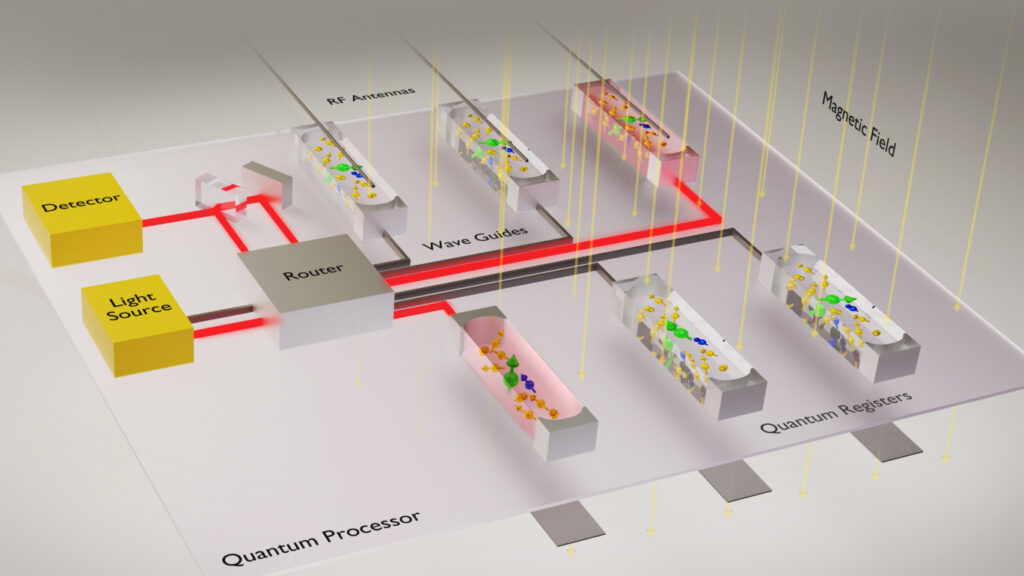
Quantum computers can potentially solve problems that classical computers can only solve with simplifications, approximations, or very long computing times. The computing power depends on the central hardware element, the qubit.
Although there are already various approaches to realizing qubits and quantum computers today, their development is still at the research and experimental stage. Therefore, innovative strategies for quantum processors are crucial on the way to the application of quantum computers.
In the SPINNING (Diamond Spin-Photon-based Quantum Computer) project, science and industry are working together on a compact, scalable quantum processor based on diamond spin qubits that can be implemented in conventional computer systems. This will enable scalable and hybrid computer architectures.
The quantum processor to be realized in the project will also be characterized by a novel networked and hybrid design, allowing for unprecedented connectivity and flexible configurability.
Compared to today's quantum computers, the planned hardware impresses with longer operating times, lower error rates, and low cooling requirements. The planned quantum processor should initially be able to calculate with 10 qubits and subsequently with 100 qubits and more, and would therefore also be able to predict the products of complex quantum chemical reactions.
SPINNING (Diamond Spin-Photon-based Quantum Computer) is funded by the German Federal Ministry of Education and Research (BMBF) within the framework of the program Quantum Technologies - from Fundamentals to Market (funding reference: 13N16209).
Participating FMD member institute: Fraunhofer IAF
 Fraunhofer Group for Microelectronics in cooperation with the Leibniz institutes IHP and FBH
Fraunhofer Group for Microelectronics in cooperation with the Leibniz institutes IHP and FBH